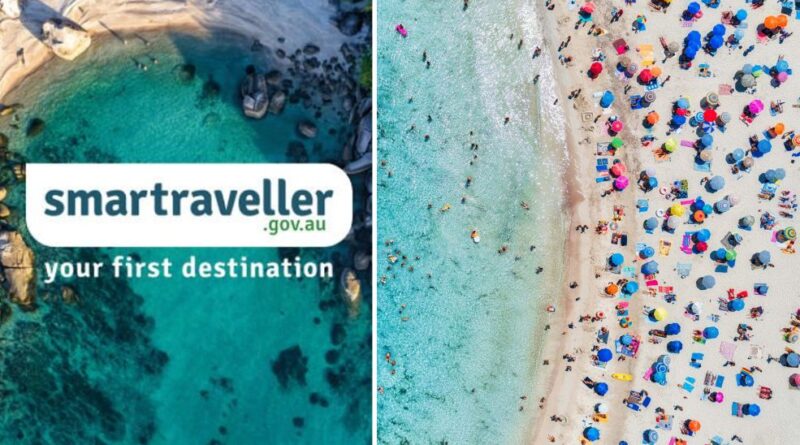Water safety while travelling overseas

Today (15 May 2025) is International Water Safety Day. Enjoying water-based activities overseas can present risks, whether it’s in a pool, lake, river or the ocean. Smartraveller aims to empower our communities with the knowledge they need to be prepared and enjoy their travels safely.
It’s important Australians research any associated risk at their chosen destination, know how they can minimise risks and what to do if things go wrong.
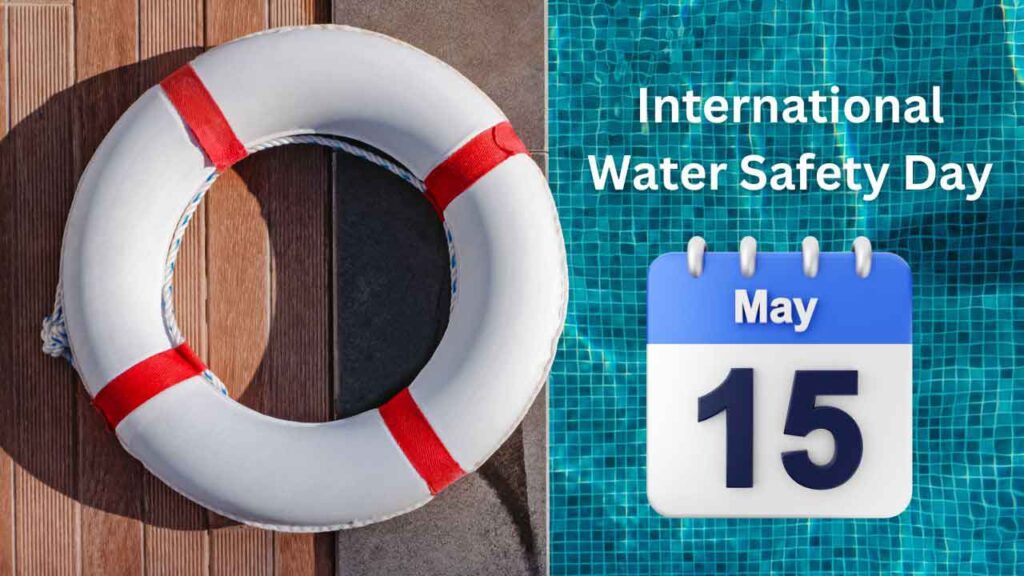
Water safety while travelling overseas
Australians love to hit the beach or pool wherever they go. But even if you’re familiar with the water and are a strong swimmer, it’s important to remember how quickly things can go wrong.
Before you travel, do your research. Find out if there are any known risks related to swimming and water sports. Learn from the experiences of other travellers. Read our travel advice about where you’re going.
Read on to learn about:
- swimming in oceans, rivers and lakes
- pool safety
- boats, diving and water sports
- alcohol and water
- wildlife.
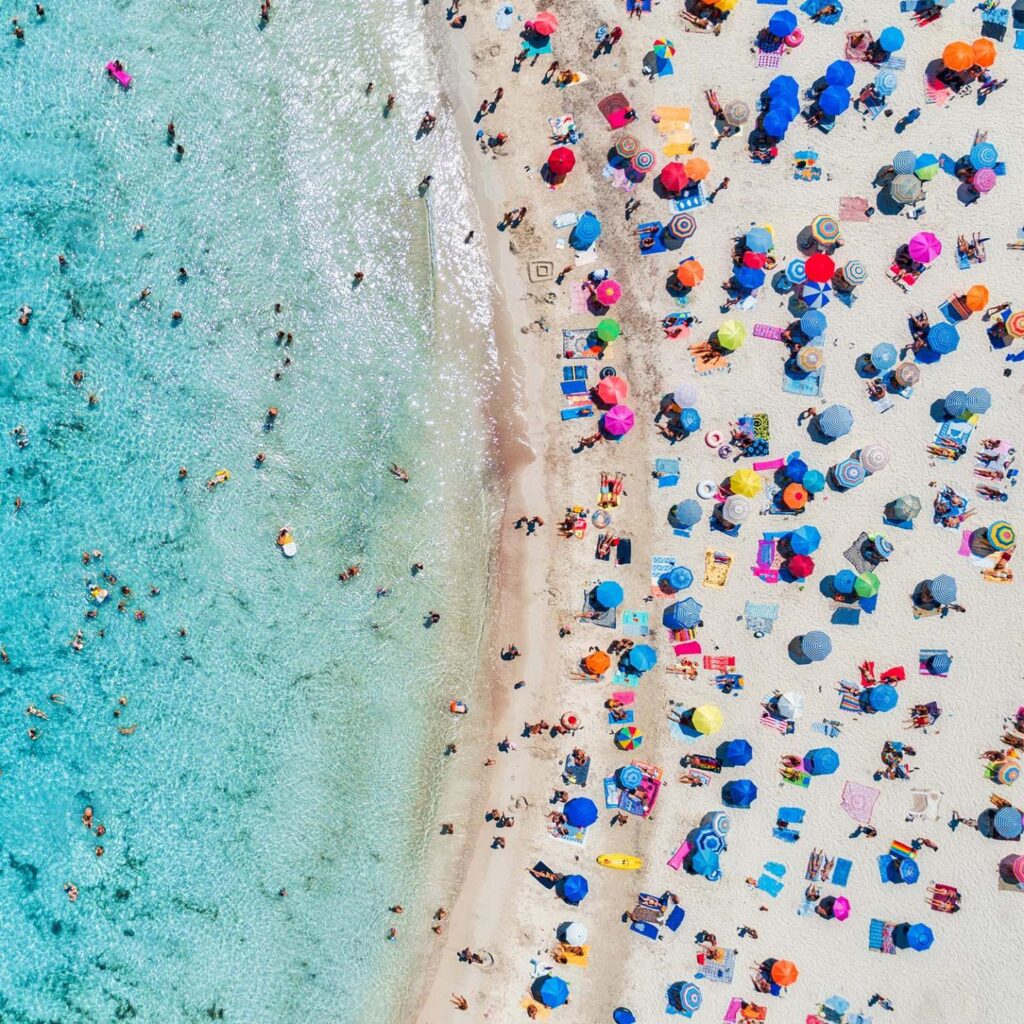
Swimming in oceans, rivers and lakes
Always take more care when swimming in unfamiliar ocean, lake or river waters. Avoid swimming alone, and don’t overestimate your swimming abilities. Even if you’re a strong swimmer, rip currents or other circumstances beyond your control can happen.
Find out what the conditions are before heading into the water. Remember that calm waters can be deceptive.
- Check for signs of rips and strong currents every time you swim.
- Ask the locals when and where it’s safe to swim, including if there is any dangerous wildlife like crocodiles.
- Be wary if you don’t see others swimming. Find out if there’s a reason.
- Look for warning signage and patrolled areas.
Don’t swim in rivers, lakes or oceans during or after severe weather. Rough, muddy waters can hide dangerous obstacles.

Pool safety
Australia has strict pool safety legislation. Other countries may not be as strict. Private villas, hotels and resort pools often don’t have safety fencing. Public pools may not be patrolled by lifeguards.
If you’re travelling with children, be vigilant. Particularly if your accommodation opens directly onto a pool or pond.
Some hotels and private accommodation providers may have temporary pool fencing for hire. Ask when you book.
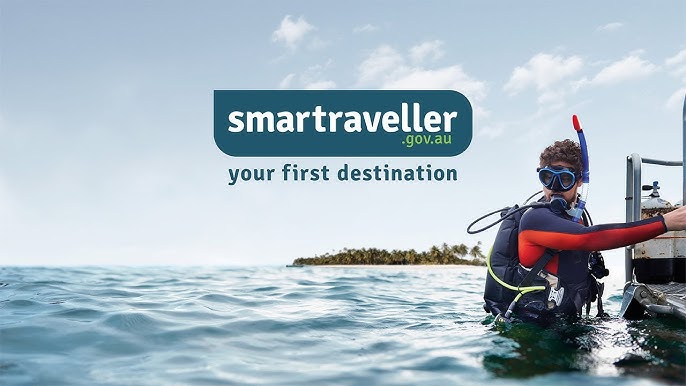
Boats, diving and water sports
If you plan to go boating, jet skiing, snorkeling or diving, choose your service provider carefully. Don’t compromise your safety to save money.
- Only use reputable businesses who comply with the safety regulations of the country you’re visiting.
- Read reviews from others who have used them.
- Look into their qualifications and safety policies, including first aid training.
Examine vehicles and equipment before using them. Ensure they’re properly maintained and safety gear is fitted correctly. Don’t use them if you’re not comfortable with their condition. Ask for a replacement or a refund.
Check the weather forecast before going out onto the water. If bad weather is coming, postpone or cancel. Even if your tour provider plans to go ahead with the activity.
Always wear a life jacket on a boat or jet ski.

Alcohol and water
Be careful around water if you’re planning on having a drink. Alcohol and water can be a dangerous mix.
Alcohol affects your coordination, balance and judgement. It also impacts your ability to help yourself and others if something goes wrong.
If you’ve been drinking:
- avoid swimming or going on a boat, especially if you’re alone
- don’t dive into a pool, river or the ocean
- be careful around water, you’re more prone to slip and fall when under the influence.
Remember, if you’re too drunk to drive a car, you’re too drunk to drive a boat, and you’re too drunk to swim.
Never drink alcohol if you’re supervising children around water.
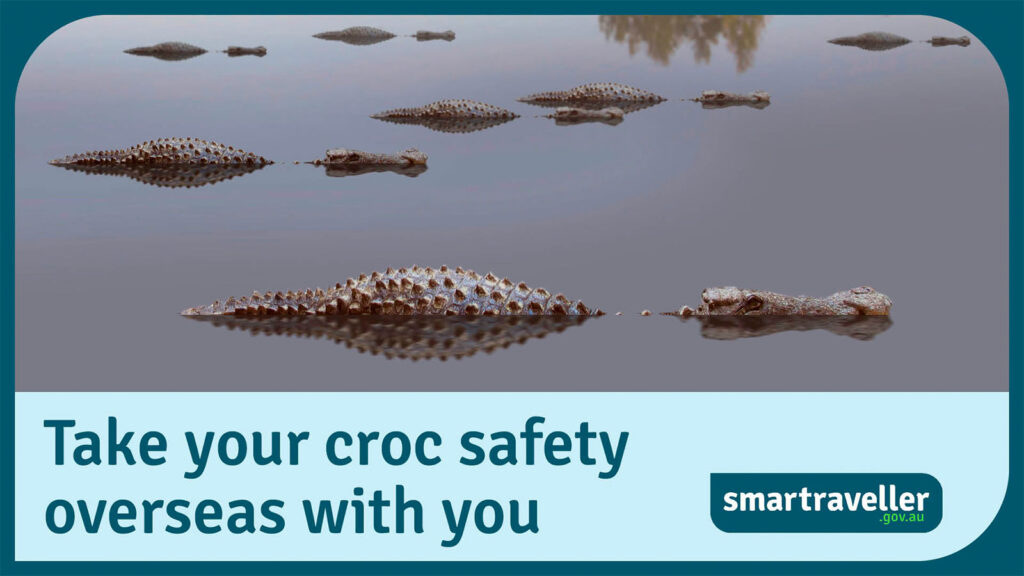
Wildlife
Just like in Australia, other destinations can have dangerous wildlife in and around the water. Crocodiles and alligators are a risk to swimmers in many countries across Asia, the Pacific, Africa and the Americas. Hippos are a particular risk to boats in parts of Africa.
Before you travel, do some research about wildlife you need to be aware of.
While you’re away, follow the advice of local authorities and keep an eye out for signage warning of dangerous wildlife. But remember signs often won’t always be present, so ask the locals if there are swimming or boating spots you need to avoid.
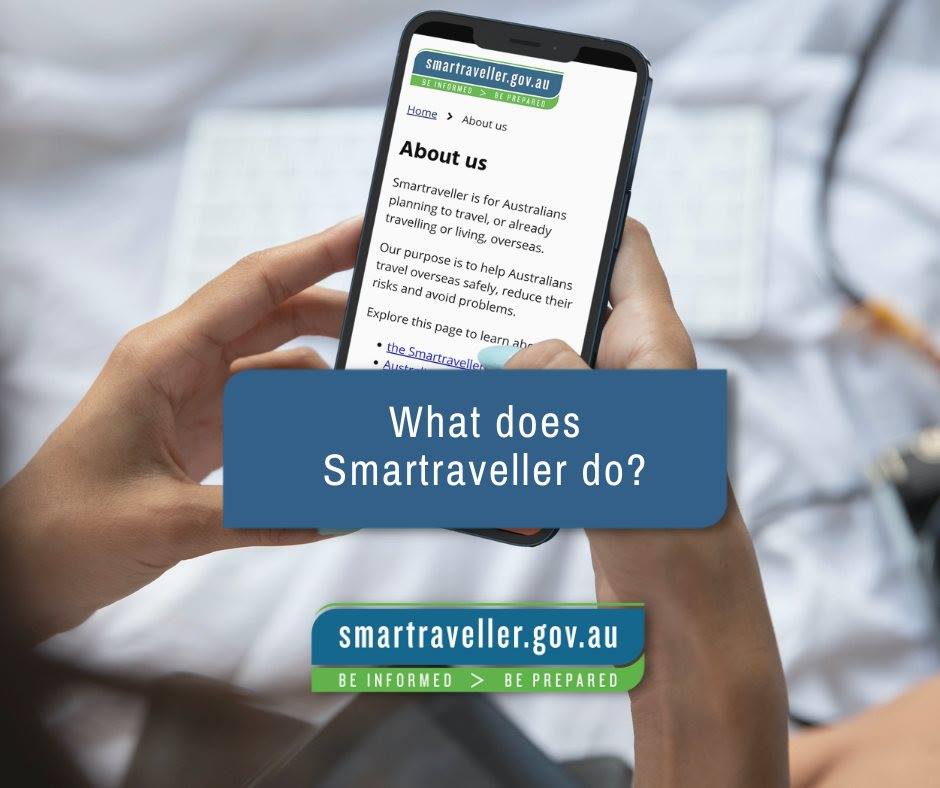
Read more
Read more advice about water safety from the Royal Life Saving Society Australia.
Australians travelling overseas can reduce their risks by visiting Smartraveller.gov.au to learn more and subscribe for free travel advice updates while they’re away.
For more information and travel tips in language, Australians can visit the community pages.
As always, we recommend that you and your community members subscribe to Smartraveller to remain updated with information and any changes to travel destination advice.
If you have any questions relating to Smartraveller, please contact media@dfat.gov.au.
